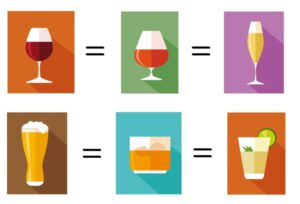Be vigilant about your alcohol intake!
Alcohol can only be eliminated by the liver to some degree, and excessive intake can be dangerous to the body.
Among the many daily functions of the liver, the most significant remains its ability to filter the blood in our bodies, removing the toxins that we consume on a daily basis.
Despite this effectiveness, an excess of alcoholic toxin can cause significant damage to the liver if consumed in large quantities. Indeed, the alcoholic toxin tends to accumulate faster than the liver can treat it.
This accumulation can cause liver inflammation and liver cell death, as well as fibrosis. This can occur when your alcohol intake exceeds 30 grams per day for several years.

A glass of wine (10 cl) = A glass of Porto (6 cl) = A glass of champagne (10 cl)
Half a beer (25 cl) = A glass of whisky (3 cl) = A glass of pasties («3 cl) = ONE ALCOOL UNIT
Overconsumption can lead to the deposition of fat in the liver (steatosis), inflammation, fibrosis or even cirrhosis, which can lead to the liver being unable to perform its functions, which are vital to humans.
More information in our article on excess alcohol, in collaboration with the British patient association Liver4Life.


